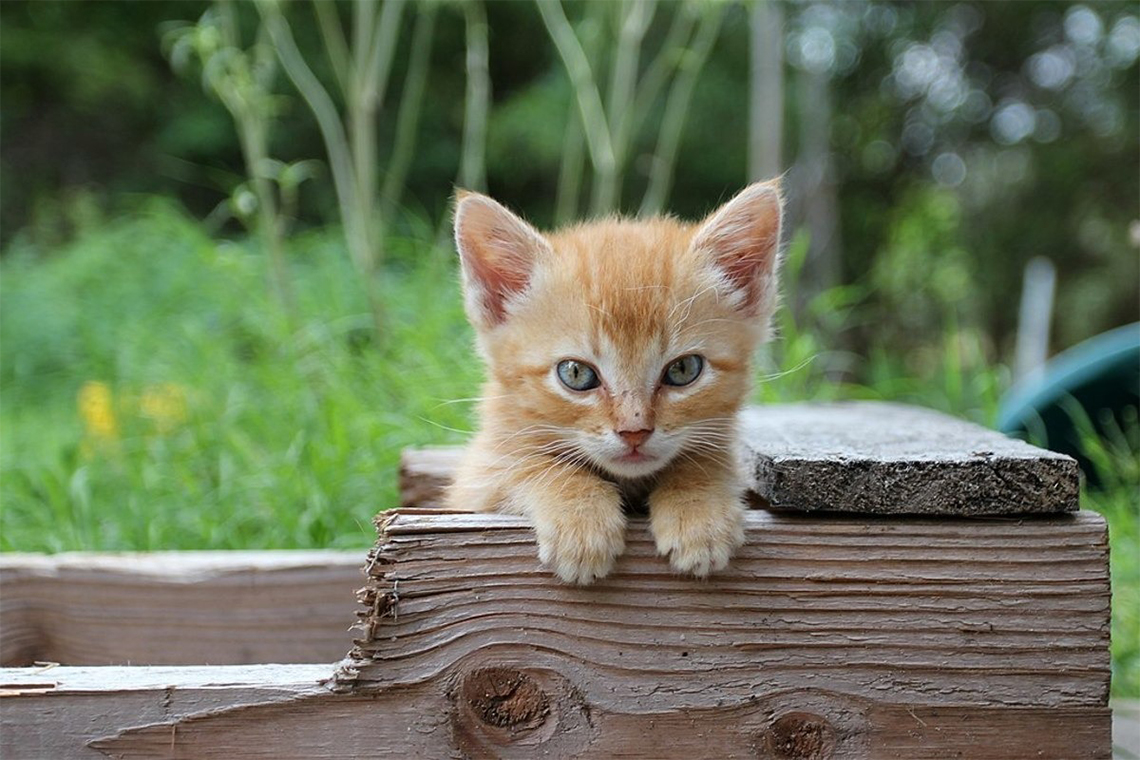Taming the Untamable – Tips for Catching and Caring for Feral Kittens
If you’re an animal lover, it’s hard to resist the urge to help a stray kitten in need. However, catching and taming feral kittens can be a difficult task that requires patience, determination, and a lot of love. In this blog post, we’ll go over some tips on how to catch and tame feral kittens, and give you some insights into the process of building trust with these sweet little creatures.
Tip #1: Be Patient
The first and most important tip is to be patient. Feral kittens are not used to human contact, and it can take a long time for them to feel comfortable around people. If you rush the process, you could scare them away and make it even harder to catch them in the future.
Start by setting out food and water in a quiet area where you’ve spotted the kittens. Be sure to use a dish that won’t tip over easily, as this could startle them. Place the food and water near a safe, enclosed area where they can retreat to if they feel threatened.

Tip #2: Use a Humane Trap
If you’re having trouble catching the kittens, consider using a humane trap. These traps allow you to safely catch the kittens without harming them. Humane traps can be purchased or rented from your local animal shelter or rescue organization.
When setting the trap, be sure to place it near the food and water, and cover it with a towel or blanket to make it feel like a safe hiding spot. Once the kittens are trapped, be sure to handle them gently and with care.
Tip #3: Use Food to Build Trust
Food is a great tool for building trust with feral kittens. Start by offering them wet food or treats on a spoon or in your hand. This will help them associate your presence with positive things.
As they become more comfortable with you, start moving the food closer and closer to your body. Eventually, they may even start eating out of your hand. This process can take time, so be patient and persistent.
Tip #4: Handle Them Gently
When you’re handling feral kittens, it’s important to be gentle and careful. These kittens are not used to human touch, and they may become frightened or defensive if they feel threatened.
Start by getting them used to your presence by sitting near them and talking to them softly. Then, slowly start reaching out your hand to pet them. Be sure to move slowly and avoid sudden movements, as this could scare them.
Tip #5: Socialize Them Early
Socializing feral kittens early is key to helping them become friendly, social cats. The best time to socialize kittens is between 2-7 weeks of age. During this time, they are more receptive to human interaction and are less likely to become feral.
If you’ve caught feral kittens at an older age, don’t worry. It’s still possible to socialize them, but it may take more time and patience. Be sure to spend as much time as possible with them, and offer plenty of positive reinforcement, such as treats and toys.
Tip #6: Provide a Safe Space
Feral kittens need a safe space where they can retreat to when they feel threatened or scared. This can be a small room or area of your home where they can feel secure and comfortable.
Be sure to provide plenty of soft bedding, toys, and hiding places for them to feel safe. You can also use a crate or carrier as a safe space if they are not comfortable in a room.
Tip #7: Get Them Checked by a Vet
When you’ve caught feral kittens, it’s important to get them checked by a veterinarian. Feral kittens are more susceptible to diseases and parasites, so it’s important to ensure they are healthy.
During the checkup, the vet will likely do a physical exam, check for parasites, and recommend any necessary vaccinations or treatments. They can also determine the kittens’ age, sex, and overall health.
If you plan on adopting the kittens, it’s important to have them spayed or neutered as soon as possible to prevent overpopulation and unwanted litters. Many animal shelters and rescue organizations offer low-cost spay and neuter services for feral cats.

Tip #8: Introduce Them to Other Cats Slowly
If you have other cats in your home, it’s important to introduce the feral kittens slowly and carefully. Start by keeping them separated in different rooms and gradually allowing them to interact under supervision.
It’s important to monitor their interactions closely, as some cats may be more accepting of newcomers than others. Be sure to provide plenty of resources, such as food, water, and litter boxes, so the cats don’t have to compete for resources.
Tip #9: Provide Plenty of Playtime
Feral kittens are playful and curious by nature, so it’s important to provide plenty of toys and playtime to keep them entertained and engaged. Try a variety of toys, such as balls, stuffed animals, and interactive toys that encourage hunting and stalking behaviors.
Playing with the kittens also helps build trust and socialization skills, as they learn to associate positive experiences with human interaction.
Tip #10: Be Prepared for Setbacks
Catching and taming feral kittens is a process that can have its ups and downs. It’s important to be prepared for setbacks, such as a kitten that suddenly becomes fearful or aggressive.
If this happens, it’s important to take a step back and give the kitten space. Try to identify what may have triggered their fear or aggression and work to address the issue.
Remember, patience and persistence are key when working with feral kittens. With time, love, and care, they can become happy, healthy, and loving members of your family.
To Conclude
Catching and taming feral kittens can be a challenging but rewarding experience. By being patient, using food to build trust, handling them gently, socializing them early, providing a safe space, getting them checked by a vet, introducing them to other cats slowly, providing plenty of playtime, and being prepared for setbacks, you can help these sweet little creatures become loving, social cats. With time and love, you can create a lifelong bond with these furry friends that will last a lifetime.












